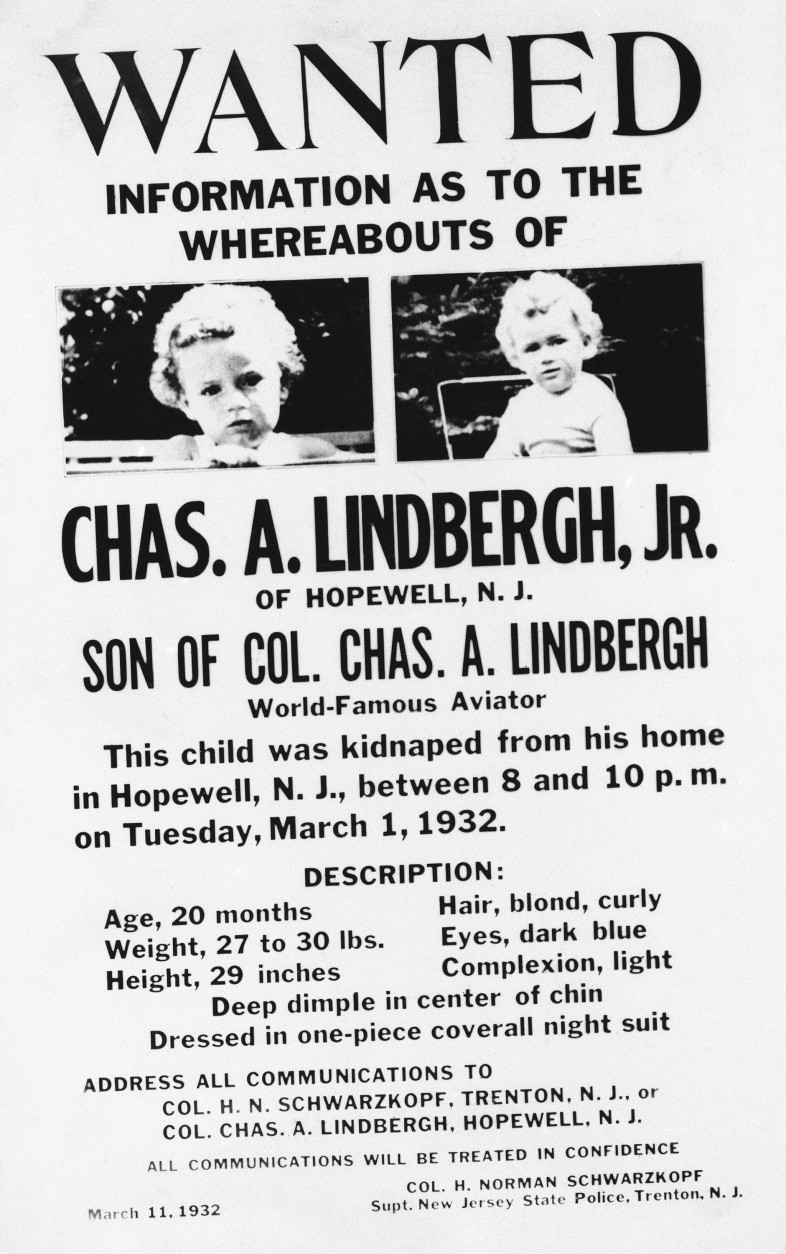
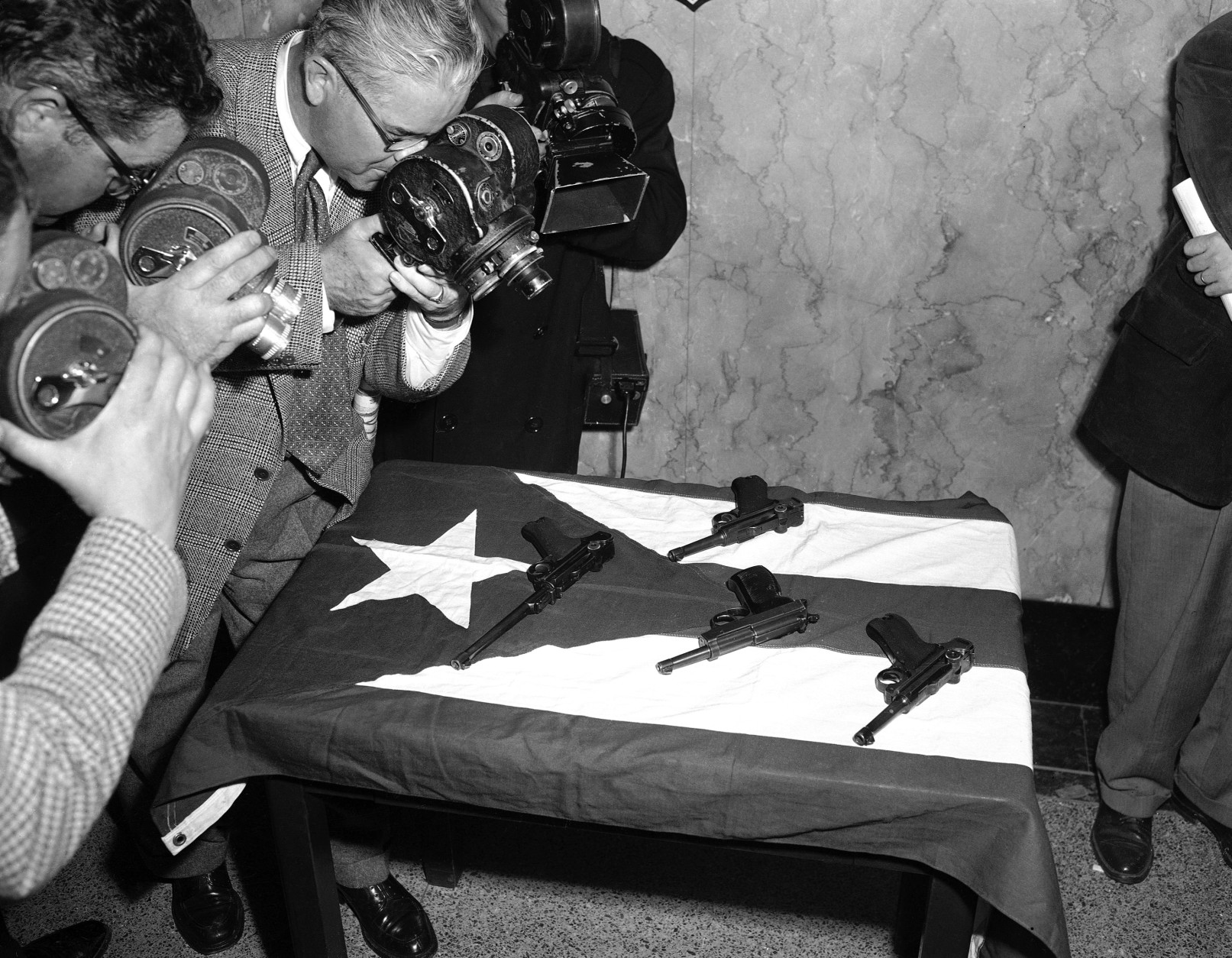

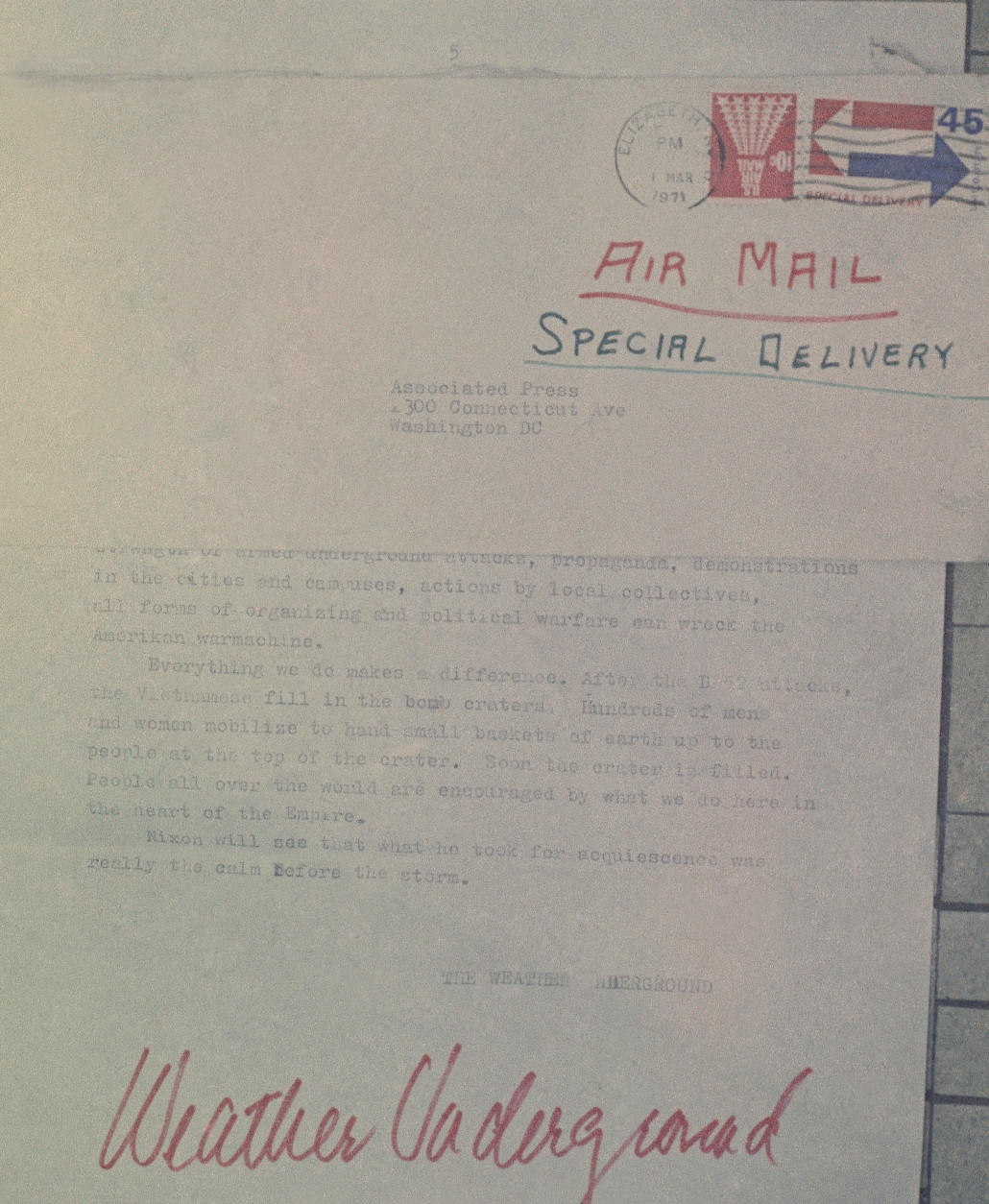
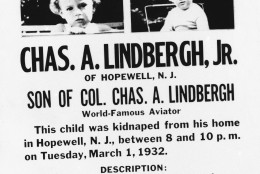
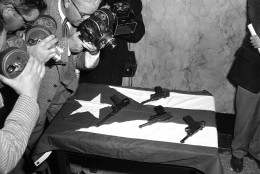

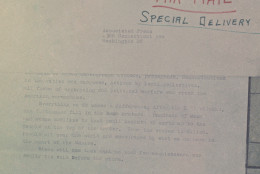
Today is Friday, March 1, the 60th day of 2019.
Today’s Highlight in History:
On March 1, 1932, Charles A. Lindbergh Jr., the 20-month-old son of Charles and Anne Lindbergh, was kidnapped from the family home near Hopewell, New Jersey. (Remains identified as those of the child were found the following May.)
On this date:
In 1781, the Continental Congress declared the Articles of Confederation to be in force, following ratification by Maryland.
In 1790, President George Washington signed a measure authorizing the first United States Census. (Census Day was Aug. 2, 1790.)
In 1867, Nebraska became the 37th state as President Andrew Johnson signed a proclamation.
In 1893, inventor Nikola Tesla first publicly demonstrated radio during a meeting of the National Electric Light Association in St. Louis by transmitting electromagnetic energy without wires.
In 1954, four Puerto Rican nationalists opened fire from the spectators’ gallery of the U.S. House of Representatives, wounding five members of Congress. The United States detonated a dry-fuel hydrogen bomb, codenamed Castle Bravo, at Bikini Atoll in the Marshall Islands.
In 1961, President John F. Kennedy signed an executive order establishing the Peace Corps.
In 1962, the first Kmart store opened in Garden City, Mich.
In 1966, the Soviet space probe Venera 3 impacted the surface of Venus, becoming the first spacecraft to reach another planet; however, Venera was unable to transmit any data, its communications system having failed.
In 1971, a bomb went off inside a men’s room at the U.S. Capitol; the radical group Weather Underground claimed responsibility for the pre-dawn blast.
In 1974, seven people, including former Nixon White House aides H.R. Haldeman and John D. Ehrlichman, former Attorney General John Mitchell and former assistant Attorney General Robert Mardian, were indicted on charges of conspiring to obstruct justice in connection with the Watergate break-in. (These four defendants were convicted in Jan. 1975, although Mardian’s conviction was later reversed.)
In 1981, Irish Republican Army member Bobby Sands began a hunger strike at the Maze Prison in Northern Ireland; he died 65 days later.
In 1990, the controversial Seabrook, New Hampshire, nuclear power plant won federal permission to go on line after two decades of protests and legal struggles.
Ten years ago: The Association of Southeast Asian Nations concluded its 14th annual summit in Thailand by vowing to push ahead with plans to become a European Union-style economic community by 2015. At a one-day summit in Brussels, European Union leaders flatly rejected a new multibillion euro bailout for eastern Europe.
Five years ago: Russian troops took over Crimea as the parliament in Moscow gave President Vladimir Putin a green light to use the military to protect Russian interests in Ukraine. French filmmaker Alain Resnais, director of such art house classics as “Hiroshima Mon Amour” and “Last Year at Marienbad,” died in Paris at age 91.
One year ago: President Donald Trump announced that the U.S. would impose steep tariffs on steel and aluminum imports, escalating tensions with China and other trading partners and raising the prospect of higher prices for Americans; stocks closed sharply lower on fears of a trade war, with the S&P 500 losing more than 1 percent for a third straight day. Kroger said it was raising the minimum age to buy guns at its Fred Meyer stores, becoming the third major retailer to place restrictions on gun sales that exceed those in federal law. After Delta reacted to the Florida school massacre by announcing that it would no longer offer discount fares to NRA members, pro-gun Georgia lawmakers killed a proposed tax break on jet fuel that would have saved the airline millions of dollars.
Copyright © 2026 The Associated Press. All rights reserved. This material may not be published, broadcast, written or redistributed.







